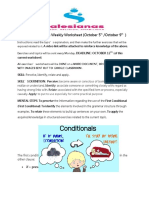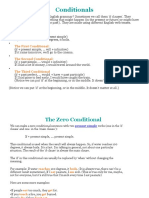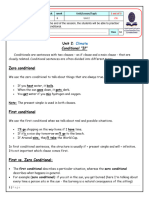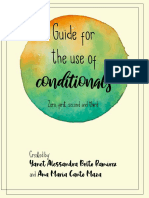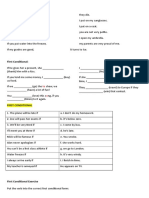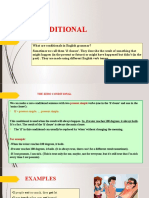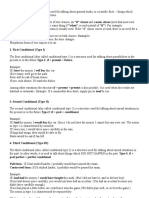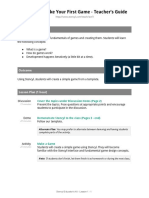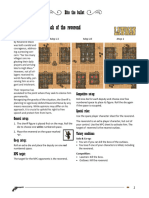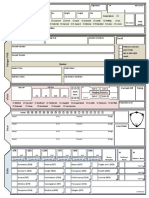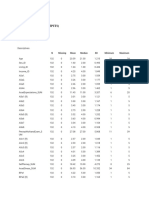0% found this document useful (0 votes)
7 views3 pagesFirst-Conditional Revised Version
The first conditional is used to express possible future events using the structure 'If + present simple, ... will + infinitive'. It differs from the zero conditional, which describes general truths, and the second conditional, which refers to unlikely situations. The document also includes exercises for practicing the first conditional form.
Uploaded by
bunsethkimteangchrin99Copyright
© © All Rights Reserved
We take content rights seriously. If you suspect this is your content, claim it here.
Available Formats
Download as PDF, TXT or read online on Scribd
0% found this document useful (0 votes)
7 views3 pagesFirst-Conditional Revised Version
The first conditional is used to express possible future events using the structure 'If + present simple, ... will + infinitive'. It differs from the zero conditional, which describes general truths, and the second conditional, which refers to unlikely situations. The document also includes exercises for practicing the first conditional form.
Uploaded by
bunsethkimteangchrin99Copyright
© © All Rights Reserved
We take content rights seriously. If you suspect this is your content, claim it here.
Available Formats
Download as PDF, TXT or read online on Scribd
/ 3





